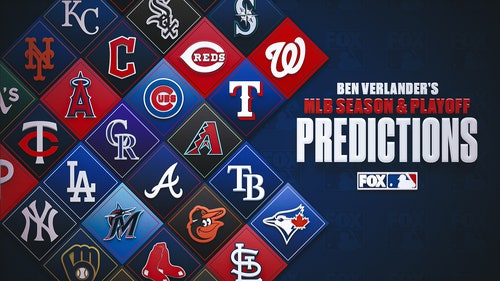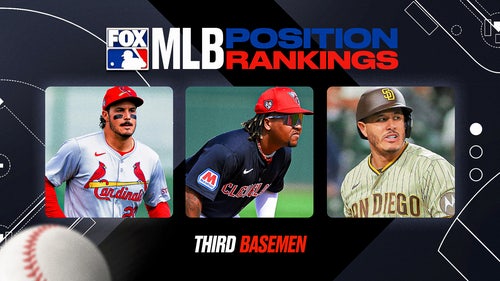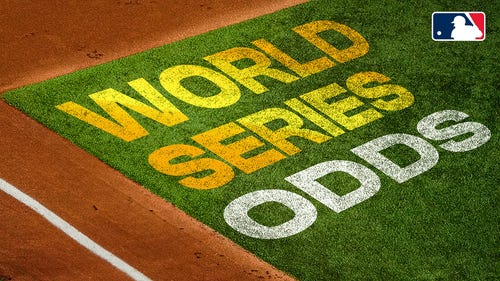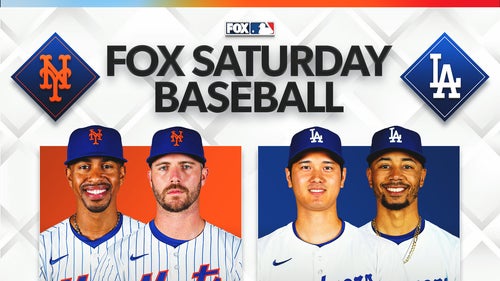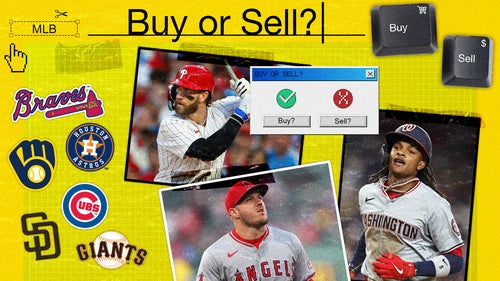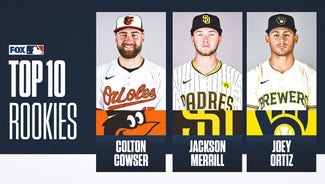
How a contract breach led Catfish Hunter to become baseball's first real free agent
The following is excerpted from Dynastic, Bombastic, Fantastic: Reggie, Rollie, Catfish, and Charlie Finley’s Swingin’ A’s. Copyright © 2017 by Jason Turbow. Used by permission of Houghton Mifflin Harcourt.
In January 1970 Oakland A’s owner Charlie Finley loaned 23-year-old pitcher Jim “Catfish” Hunter $150,000 to buy a 485-acre farm adjacent to his existing property in North Carolina. Hunter was to repay the money at a minimum of $20,000 per year, plus 6 percent interest, for as long as it took to get square. At Hunter’s salary—$21,500 in 1969, $33,200 in ’70—it was a stretch, but worth it. The pact was consummated with a handshake, no contract necessary.
Just a few months later, however, the Owner purchased the Memphis Pros of the American Basketball Association, supplementing the hockey team he had already acquired, the NHL’s California Golden Seals. This placed more strain on the financial reserves of Charles O. Finley & Company than anticipated. Recouping his loan to Hunter was among the Owner’s quickest paths to solvency.

Dynastic, Bombastic, Fantastic
by Jason Turbow
Hunter tried to arrange alternative financing through multiple banks in North Carolina, but without showing up in person it couldn’t be done. He asked Finley for a leave of absence between starts to pull something together, but his request was denied. Hunter grew nervous, began losing sleep. Finley’s bombardment peaked in August. Hunter went 0-4 in his seven starts that month. When the 24-year-old finished the 1970 season with an 18-14 record—tantalizingly close to his first 20-win campaign—he knew just where to look for the two missing victories. “I asked [Finley] once why he only called me on the days I was due to pitch, but he said he didn’t know when I was going to pitch,” Hunter recalled. “That was a bunch of bull, because Charlie knows everything that’s going on in this club. He tells the managers who to pitch and when. I tried not to think the worst of him, but it was impossible.”
The land was important to Hunter, who as a local farmer possessed innate understanding of its value. Desperate to find a suitable arrangement, he even offered up insanity: a 10-year contract at $15,000 per season in lieu of the $150,000 that he owed. It would have priced the pitcher’s services at below half his current value, never mind inflation. Finley, unwilling to consider anybody’s terms but his own, refused. As soon as the season ended Hunter raced home to arrange for a second loan to cover the first, but gave up when a boundary-line dispute delayed the proceedings. That winter he sold 80 percent of the farm to a family friend for his initial $150,000 investment and sent the money to the Owner.
Bitter feelings from that exchange stayed with the pitcher for a long time, and informed his future actions. From that point on, every deal Hunter made with Finley was extensively documented, with signatures from each party in all the appropriate places. That last detail, it turned out, would prove to be instrumental in the years to come.
On Feb. 11, 1974, Hunter agreed with Finley on a two-year deal at $100,000 per—only the second multiyear contract the Owner ever awarded. Hunter was by that time among baseball’s best pitchers, with three straight 20-win seasons, three All-Star appearances in four years, and back-to-back top-five finishes in the Cy Young voting. Although his contemporaries were earning much more—Tom Seaver made $173,000 in 1974, and Steve Carlton $165,000—Catfish had no way of knowing that. He’d always wanted to earn six figures, and when Finley made the offer it seemed just fine.
There was only one caveat, Hunter said. His attorney back home in North Carolina, J. Carlton Cherry, had advised him to defer some of it. Put it into a life insurance annuity, he said, which could be cashed in for additional income once Hunter’s baseball career ended. The benefit to this arrangement was that instead of being in a high tax bracket in 1974, Hunter would be taxed later on, when he was effectively unemployed and on the hook for a smaller amount.
That is exactly how Cherry wrote the addendum: $50,000 per year, to be paid at regular intervals through the season, and $50,000 disbursed to an entity of Hunter’s choosing. Finley agreed. The benefit to Finley was that he got to hold on to the money in the interim, earning interest on it all the while.
The difference with Hunter’s stipulation was that the Owner wouldn’t have the money at all—the annuity would. Even less palatable for Finley was the discovery that about $25,000 in taxes was due immediately, and he would be the one paying them. Before long the Owner denied having agreed to anything, claiming he never saw the wording appended by Cherry.
There were two flaws to this argument. One was that Finley, while poring over the contract, added revisions in his own handwriting—instructions to his payroll department to earmark payments to whomever Hunter designated. The other was that the Owner did not actually sign the document. On its surface, this seemed like a boon for him. If he hadn’t agreed to the arrangement, after all, it could hardly be valid. But the document in question was the only contract Hunter had. If it was not valid, that meant Catfish had been pitching contract-free, which would make him a free agent.

When the 1974 season opened, Finley made the standard payments every two weeks as agreed. Although Cherry provided specific directions for the annuity deposit—to be paid to the Jefferson Insurance Company of North Carolina, starting midseason—the Owner did not put a penny toward it. Hunter was effectively pitching for half the money for which he signed.
Cherry spent the summer’s middle months peppering Finley with letters seeking fulfillment. At first the Owner didn’t respond. Later he offered a bevy of excuses, including that the paperwork was lost.
By early August Finley was sufficiently concerned to urge Hunter to accept a straight payment of $50,000. In September, the pitcher turned to Washington attorney and agent Jerry Kapstein for help, and reported the pertinent details. “I did everything I could to live up to the contract, but he still has not paid the money,” Hunter told him. “I don’t know much about this, Jerry. Do you think I’m a free agent?”
“Jim, let me ask you this,” said Kapstein. “Did your lawyer, Mr. Cherry, give Finley official notice of the contract breach?”
“Yes, he did.”
“Did the 10-day period [as stipulated in the contract] pass after Finley received the letter?”
Not only had the period passed, Hunter said, but Finley never even bothered to respond.
“Based on those facts, it would appear to me you will be a free agent,” Kapstein said.
Telling the pitcher to lay low until the end of the season, the agent said that he’d visit Cherry in North Carolina over the winter to work out details. “Be sure no one else knows,” he warned.
When Miller and MLB Players Association counsel Dick Moss read the contract, they agreed with Hunter’s interpretation and sent written notice to Finley about the violation. They also noted, as per the terms therein, that Finley had 10 days in which to comply. This was standard language found in every uniform player contract, placed there 40 years earlier by the owners themselves to provide a reasonable buffer against default claims. Once that buffer expired, however . . . well, they were breaking new ground. According to the union, Hunter could proclaim himself a free agent as of Sept. 26, but he did not want to distract from Oakland’s playoff push. On Oct. 4 the MLBPA sent a telegram to Finley’s Chicago office, notifying the Owner of his default and informing him that “because of the impending playoffs and World Series, the effective date of termination [of Hunter’s contract] shall be the day following the last game played by the Oakland Athletics in 1974.”
The ALCS began at the Coliseum the following day. Finley was there, as was American League president Lee MacPhail. Seizing the opportunity, the Owner brought MacPhail into the clubhouse, where he found Hunter and offered him a check for the outstanding $50,000 on his contract. “Let’s get this out of the way,” he told the pitcher. “I’ll give you the money, and we can go try to win the World Series.” Catfish, heeding Cherry’s advice, turned him down. “Mr. Finley,” he said, “you pay it the way the contract reads, and everything will be just fine.” Finley launched into histrionics, crying to MacPhail, “What can I do? I offer him the money and he won’t take it.”
The display swayed MacPhail, who later said, “The Oakland club offered everything to which [Hunter] is entitled. I can’t see how anyone can say he’s a free agent.” The trouble with that logic was that Hunter, like any employee in any profession, was entitled to the terms of his contract, and accepting a check for which he’d have to pay taxes was not within those terms. When Hunter claimed to become a free agent after the season, he had little idea whether it would actually come to pass. There was no questioning, however, that Catfish meant every word he said.
On Oct. 10, two days before the World Series was to start, Jerome Holtzman wrote a story about Hunter’s contract in the Chicago Sun-Times, based on a report he received from one of Hunter’s confidants—former teammate Mike Hershberger—which included this bombshell: the best pitcher on the best team in the league was attempting to jump ship. By Oct. 11 it was national news. There was no hiding it now.
Kapstein heard about it just in time to hightail over to Dodger Stadium for Friday’s workout. In the Dodger Stadium press box, the agent laid it all out for the assembled media, adding that Hunter was not talking because his focus was on the World Series. Catfish broke the news of his possible departure to Tenace, Bando and Rudi that night over dinner with their wives. Tenace spent the ensuing days humming “If I Were a Rich Man” around the clubhouse.
Union leader Marvin Miller, meanwhile, sent a letter to MLB Commissioner Bowie Kuhn, seeking official recognition of Hunter’s free agency. As expected, Kuhn declared such a penalty to be too severe. He even suggested mediating the dispute himself, which Miller countered with a clause in the Basic Agreement mandating an impartial arbitrator for contract disputes between players and owners.

Only an hour after the World Series ended, even as Oakland players celebrated in their clubhouse, the union filed two grievances—one against Finley for breach of contract, another against Kuhn and Major League Baseball for failure to declare Hunter a free agent. Finley remained bewildered, at least publicly. “I cannot believe that Catfish would do this to me,” he said. “I’m sure that he will be with us next season.” Privately, he was less reticent. When Hunter approached him with a solution to both their problems—a long-term contract at $200,000 per season, with a $200,000 bonus—Finley rejected him outright and did not counter.
An arbitration hearing took place on Nov. 26 in New York. Hunter’s team claimed that Finley knew everything about the annuity arrangement from the beginning and willingly defaulted. Finley argued that he believed the deal to involve deferred money, paid after the pitcher’s career ended—not a sum due right away. Tasked to make sense of it was a three-person panel. The votes of the first two members—Miller, on behalf of the players, and John Gaherin, the owners’ chief negotiator—canceled each other out. That left things up to Peter Seitz, a 69-year-old litigator with nearly two decades of arbitration experience across numerous industries.
Seitz took 20 days to announce his decision, and when he did it was groundbreaking. He sided with Hunter completely. Finley was on the hook for the outstanding $50,000, plus interest, for Hunter’s services in 1974, and because he had not fulfilled the player’s contract, it was theretofore terminated. Just like that, Major League Baseball had its first true free agent.
The Owner immediately sought a court order overturning Seitz’s ruling. Bowie Kuhn said it was “like giving a life sentence to a pickpocket,” and imposed a moratorium on other teams negotiating with Hunter.
They both knew it was folly. An arbitration ruling had to possess serious discrepancies to be overturned—“capricious, arbitrary or dishonest conduct” was how Kuhn described it, even as he noted that none of the above factored into Seitz’s decision. The courts agreed, refusing Finley’s plea at two levels of the judiciary.
On a personal level, Finley could not understand Hunter’s ingratitude. Hadn’t the Owner been the one to personally scout him in the backwoods of Hertford, N.C.? Hadn’t he stuck with him through his hunting accident? Hadn’t he showered him with a $75,000 signing bonus? What about the five grand he gave him for pitching a perfect game, or the cost of a new Cadillac for winning 21 in 1971? The Owner went out of his way to invest money for Catfish, generating an after-tax profit of $15,000 in 1972 alone. And what about the farm loan? Such was the Owner’s myopia that he refused to acknowledge that his actions in recalling the loan undid any goodwill that may have previously been fostered.
On Dec. 18, Kuhn, seeing no other option, lifted his moratorium. The race was on. Catfish had won 106 games over the previous five years and had just been voted the American League’s best pitcher and was still only 28 years old. Early speculation said that it might take as much as $1 million to lock him up.
Ahoskie, N.C., population 5,500, was the “big city” close to Hunter’s home in Hertford, about an hour’s drive to the northwest. It was also the location of the law offices of J. Carlton Cherry, Hunter’s 68-year-old longtime attorney, who had maintained a practice in town for some 45 years. For three weeks in December 1974, Cherry’s firm became the most prominent entity on baseball’s landscape, the result of the lawyer’s decision to avoid sending his client on a tour of interested parties and instead bring the parties to him. Hunter and his team entertained between three and five clubs a day, 48 executives in all by the time things wrapped up. “I love this place,” said Catfish’s old pitching coach in Oakland, Bill Posedale, in town representing his new employer, the San Diego Padres. “I bought the whole town of Ahoskie drinks last night, and it only cost me two dollars.”
It didn’t take long for the $1 million predictions to be blown from the water. The first team to make an offer, the Cleveland Indians, opened with $2.4 million over 10 years. By day’s end the Red Sox had upped it to $3 million over five. After that, teams got creative.
The Rangers discussed a generous straight salary, plus a farm annuity, plus $30,000 a year for 15 years. Pittsburgh offered $3.75 million for five years, plus, among other perks, limited partnership in five new Wal-Mart stores. The Royals weighed in with $137,500 per year for six years, money for the farm, college tuition for Hunter’s kids, and a figure that nearly got the pitcher to sign on the spot—$50,000 a year for life. When Hunter asked, however, what would happen to the contract after he died, Kansas City GM Joe Burke told him that his demise would be the termination point. “How about my wife?” asked Catfish. Joked Burke, “Well, we won’t have to worry about that, will we? You’ll be dead.” It was not a good joke, and it continued to sour Hunter even after the Royals added $30,000 per year for the rest of Helen Hunter’s life as well.
As it all unfolded Hunter received a personal letter at his own PO box in Hertford that read, in part, “I naturally feel that the arbitrator, in making his decision, exceeded his authority and jurisdiction . . . however, I hereby offer, without qualification, to purchase and own the annuity on your life as you requested on or about August 1, 1974.”
It was from Finley. Amid the fervor for the pitcher’s services, he was supplicating himself—or coming as close to it as he knew how. A contract to play for the A’s in 1975, he said, would be arriving shortly.
Upon seeing how poorly his five-year, $1.5 million proposal stacked up, Yankees president Gabe Paul conceded defeat and made the two-and-a-half-hour road trip to Raleigh for his return flight to New York. One thing Paul had working in his favor, however, was Yankees director of minor league scouting Clyde Kluttz.
Kluttz, who visited Hunter along with Paul, was the former A’s scout who had been vital in steering the pitcher toward the A’s in the first place. As a fellow North Carolinian, he’d endeared himself to the Hunter family, earning extra points shortly after Hunter first signed when Finley tried to backtrack and get the teenager to agree to a second contract—dated 1965 instead of 1964—that would have allowed him to be sent to the minors without penalty owing to the expiration of the bonus baby rule. “Don’t sign nothing else,” Kluttz advised. Hunter listened, and never spent a day in the minors. A decade later it was Kluttz, still tight with the pitcher, who suggested Hunter’s $200,000-per-year compromise offer to Finley.
When Kluttz called his wife, Wayne, from the airport to tell her that he and Paul were homeward bound, she surprised him with instructions to stay put. “You have breakfast with that boy tomorrow morning,” she insisted. “You know Jim and he knows you. You talk to him once more.” So Kluttz did exactly that.
He found Hunter chock-full of questions. Can I live in New York City? Kluttz was no fan of the urban environment, but there were places on the outskirts with space to breathe. Steinbrenner? Couldn’t be worse than Finley, Kluttz reasoned, plus he’s just as serious about winning. Kluttz talked about the rabid fan base and increased opportunities in the country’s largest media market. Ultimately, though, New York’s offer wasn’t close enough to merit serious consideration.
Hunter wanted to make a decision by the next day, Dec. 31. He was tired of the hour-long drive into Ahoskie, not to mention that the baseball season ended two months earlier and he hadn’t so much as dusted off his hunting rifle. Catfish was leaning toward San Diego, although Cherry was still championing the Royals. The Red Sox, Angels, Pirates and Mets had outside chances.
On the morning of the last day of the year Hunter drove to Ahoskie prepared to finalize a deal. Before seeing Cherry, however, he stopped at the Tomahawk Motel to meet Kluttz for a cup of coffee. That was where the old scout shot the final arrow in his quiver. “Jimmy,” he asked, “what would it take for you to come and play for the Yankees?” Kluttz had no power to make an offer, but he had a direct line to somebody who did. Hunter told him—a five-year deal with 15 years of deferred money at $100,000 per season, plus college funds for his kids and a variety of perks to be determined. The two men went to Cherry’s office, where one of the attorney’s partners, Joe Flythe, called Paul with details of the contractual benchmarks that could seal the deal.
It put the executive in a tight spot. Ordinarily, Paul could go directly to owner George Steinbrenner for approval, but the Boss had been suspended by Bowie Kuhn for making illegal campaign contributions to Richard Nixon and was temporarily banned from contact. They were talking about nearly $3.5 million over five years, and Paul needed help. He placed a call to Yankees minority partner Ed Greenwald, a prominent tax attorney in Cleveland, and together they concluded that they could make it work. Paul was vibrant when he called Flythe back. “That’s more money than we wanted to pay,” he exuded, “but we’ll do it.”

There was only one catch. That kind of financial outlay required the Yankees to squeeze every penny they could from the contract, and for tax purposes it made sense to put the deal on their 1974 books. That left them about 12 hours to finalize things. While Paul and Flythe made travel preparations for New York, Greenwald was already on his way to the airport in Cleveland to charter a plane to North Carolina. In the midst of the mayhem, the phone rang. It was Padres GM Buzzie Bavasi, who had just received approval from owner Ray Kroc to increase his already enormous offer, worth $4.5 million, including cash, stock, and a McDonald’s franchise. “If you come to San Diego,” he barked into the telephone, “you can write your own check.”
Bavasi was informed that at that very moment Hunter was heading out the back door, to the airport and New York City. The executive raged about being used as a pawn to drive up other offers, but there was little he could do. Hunter, Kluttz, and a coterie of lawyers from Cherry’s office met Greenwald’s plane at the Suffolk Airport in Virginia, some 45 minutes away. For the duration of the flight, Greenwald, yellow legal pad in hand, drafted an addendum to the standard player’s contract, conferring with Hunter’s team every step of the way. By the time they reached New York it was 10 pages long and barely legible, owing to a bumpy trip. The document would come to be known around Yankees HQ as “the Catfish Hunter Manifesto.”
Upon landing in New York at 6:00 p.m., the group sped to Paul’s office, where they pored over the details, point by point. Shortly after 7:00 p.m. Paul had a staffer schedule a news conference for 8:15. There was no indication what it was about. As the room began to fill, the two sides were still finalizing details. It seemed for a moment that the midnight deadline might come and go . . . and then it was done. A souvenir Yankees cap was propped atop Hunter’s head, and out he went, smiling, to face the crowd.
That was moment that George Steinbrenner became relevant to baseball’s landscape, and that Charles O. Finley became an afterthought.






































































































































